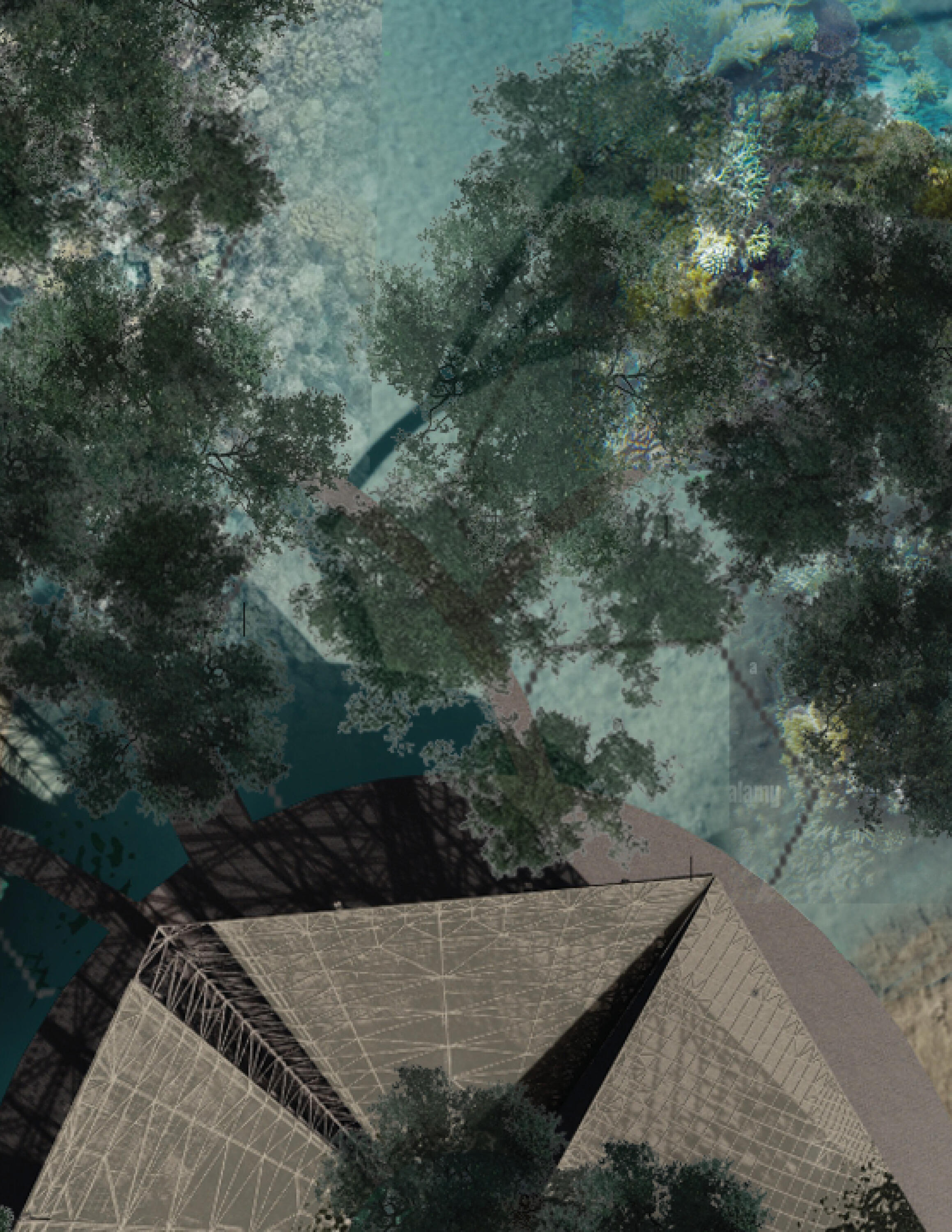Designing a living barrier that reacts in fortifying the coast against extreme climate events, aims to reharmonize the identity of people, land, and water on the Island of Efate, Vanuatu

Abstract:
On the Pacific island of Vanuatu, the connection the islanders have nurtured with the land and water is both evident and fundamental to their conception of life and legacy -the spirits of their ancestors are thought to inhabit the island’s minerals and express themselves through the waves. Climate change has begun to sever the sacred unity between nature and themselves. This thesis will examine the severe impacts of climate change on island systems, riparian, coastal, and marine ecosystems. In evaluating these long-reaching effects, the thesis will provide insights into the following lines of inquiry, informing the solutions and recommendations arising in consequence. An island of people is at risk of losing their homes and who they are as a nation.
While exploring the island’s history, the far-reaching effects of colonial influence and their reckless disregard for the natural environment will become evident. This thesis dedicates a large section to the research on the island, identifying a limited problem and then providing a larger-scale design solution. How can implementing foreign architectural systems improve the lives and conditions of all species on the island while ensuring that design remains unintrusive, that the natural environment is utilized sustainably, and that critical lessons can be made transferrable to other contexts? In the presence of chaos, how can designs leverage disorder to create a safer environment for adaptation? Natural living systems and geotextile design have been widely explored within the field of architecture, and precedents in their usage have been discovered, whether by intention or chance. However, the interfacing between these will become a key component in designing a natural floating geotextile ecosystem that begins to counter some of the physical effects of climate change on the designated site.
The examining committee is as follows:
Supervisor:
Philip
Beesley
Co-supervisor:
John
McMinn
Committee
member:
Eric
Haldenby
Internal-external
reader:
Robert
Jan
Van
Pelt
External:
Martine
Spinks
The
defence
examination
will
take
place:
Tuesday,
December
6,
2022,
10:30
a.m.
This
will
be
taking
place
online
via
Teams.
Please
contact the
grad
office or
the
student
for
the
Teams
link.
The
committee
has
been
approved
as
authorized
by
the
Graduate
Studies
Committee.
A
copy
of
the
thesis
is
available
for
perusal
in
ARC
2106A.